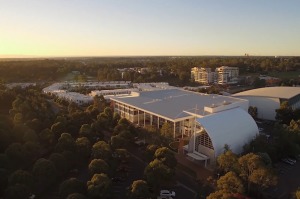Democrat or Republican: Blame It on the Brain?
A study found that a person's political party identification can be predicted with a high degree of accuracy by examining which part of their brain processes risk.
Democrats, or liberals, showed greater activity in their left insula; Republicans, or conservatives, showed greater activity in their right amygdala, found researchers Darren Schreiber, Greg Fonzo, Alan N. Simmons, Christopher T. Dawes, Taru Flagan, James H. Fowler and Martin P. Paulus. The results of the study were published by PLoS ONE in an article called, "Red Brain, Blue Brain: Evaluative Processes Differ in Democrats and Republicans."
For the study, 82 participants were asked to complete an exercise in which they were required to choose between risky or safe choices in order to get a financial reward. They could choose a safe bet for an automatic small reward, or they could choose a risky bet in which they could get nothing or they could get a much larger reward.
Both the Republicans and the Democrats took about the same amount of risk, but they used different parts of their brain to decide whether they would engage in the risky behavior. Since ideology was not available, the researchers used party identification as a proxy for ideology, with Republicans as conservatives and Democrats as liberals.
The amygdala region that the Republicans mostly relied upon is important for processing "attention to external cues," "fear conditioning," "emotional information processing" and "behavior and encoding emotionally salient information." The insula region that Democrats mostly relied upon helps to process "pain, interoceptive, emotion-related, cognitive, and social processing." Put more simply, the amygdala helps us process fear and the insula helps us process disgust.
The process could be used to accurately predict a person's political party preference 82.9 percent of the time, the researchers found.
Since the study does a better job at predicting a person's ideology than genetics (the ideology of one's parents), the researchers believe it indicates that political engagement could change one's brain: "... acting as a partisan in a partisan environment may alter the brain." In other words, your brain can change over time, and with it, your political party preference can change.





























